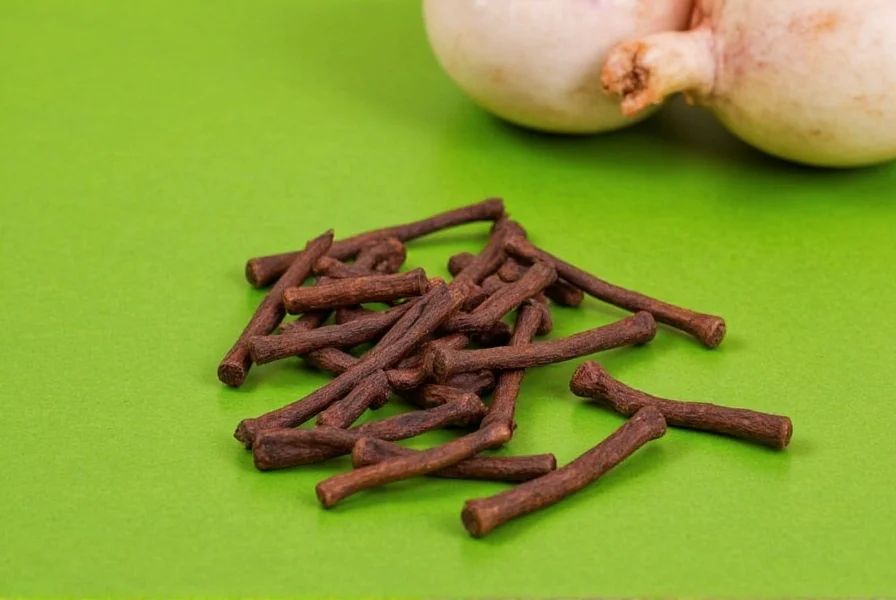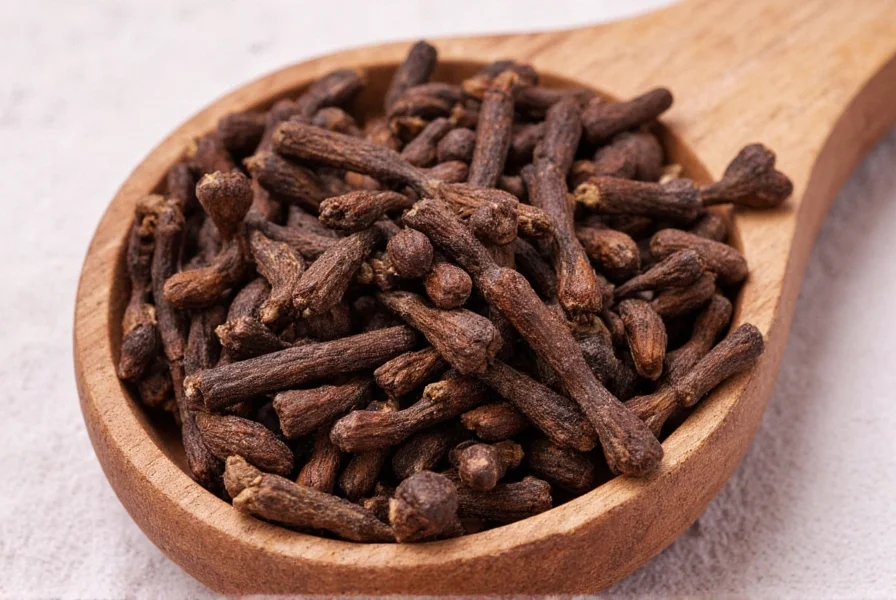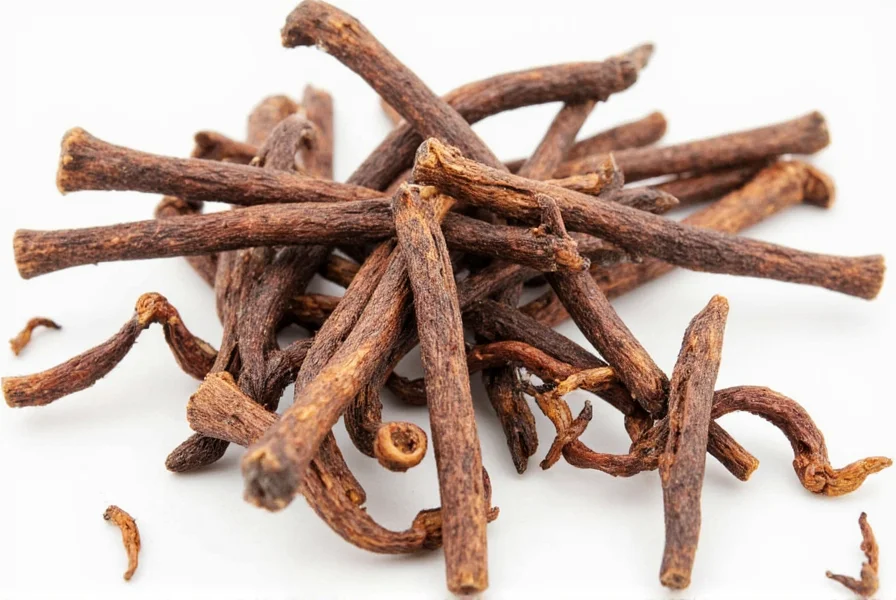Understanding Clove Nutrition: A Powerful Spice with Health-Boosting Properties
Often overlooked as merely a holiday spice, cloves pack a remarkable nutritional punch that extends far beyond their distinctive flavor. These dried flower buds from the Syzygium aromaticum tree have been used in traditional medicine for centuries, and modern science continues to validate many of their health-promoting properties.
Nutritional Profile of Cloves
Despite their small size, cloves deliver an impressive array of nutrients. The following table details the nutritional value of cloves per 100 grams, providing perspective on why even small culinary uses contribute meaningfully to your diet:
| Nutrient | Amount per 100g | Daily Value % |
|---|---|---|
| Calories | 271 | 14% |
| Total Fat | 13g | 17% |
| Carbohydrates | 65g | 24% |
| Dietary Fiber | 33g | 118% |
| Protein | 6g | 12% |
| Manganese | 1.2mg | 52% |
| Vitamin K | 27.3mcg | 23% |
| Vitamin E | 8.8mg | 59% |
| Calcium | 632mg | 49% |
| Magnesium | 259mg | 62% |
When used in typical culinary amounts (about 1-2 grams per serving), cloves still contribute meaningful nutrients. One teaspoon (2g) of ground cloves provides approximately 6% of your daily manganese needs, 2% of vitamin K, and 1.5 grams of dietary fiber.
Key Health Benefits of Cloves Supported by Research
Exceptional Antioxidant Capacity
Cloves rank among the most antioxidant-rich spices available. Their ORAC (Oxygen Radical Absorbance Capacity) value is exceptionally high at approximately 290,000 μmol TE per 100g, significantly outperforming many fruits and vegetables. The primary antioxidant in cloves is eugenol, which comprises 70-90% of clove essential oil.
Research published in the Journal of Agricultural and Food Chemistry demonstrates that eugenol effectively neutralizes free radicals and may help reduce oxidative stress throughout the body. This antioxidant activity represents one of the most significant health benefits of clove spice for long-term wellness.
Anti-Inflammatory Properties
The eugenol in cloves exhibits potent anti-inflammatory effects by inhibiting inflammatory enzymes like COX-2. A 2019 study in Phytotherapy Research found that clove extract significantly reduced inflammation markers in test subjects. This makes understanding the anti-inflammatory properties of cloves particularly relevant for those managing chronic inflammatory conditions.
Unlike pharmaceutical anti-inflammatories, cloves offer this benefit without the gastrointestinal side effects commonly associated with long-term NSAID use.
Oral Health Protection
For centuries, cloves have been used to alleviate toothaches and promote oral health. Modern research confirms that clove's antimicrobial properties effectively combat oral pathogens. A study in the Journal of Indian Society of Pedodontics and Preventive Dentistry found that clove oil was as effective as benzocaine in providing temporary tooth pain relief.
The clove oil benefits for oral health extend beyond pain relief to include reducing plaque formation and fighting bacteria that cause gum disease. Many natural toothpastes and mouthwashes now incorporate clove as a key ingredient for these reasons.

Digestive Support
Cloves stimulate digestive enzyme production and may help alleviate common digestive issues. Research indicates that clove extract can reduce gastric emptying time and protect the stomach lining from ulcers. The compound eugenol appears to relax smooth muscle tissue in the digestive tract, which explains why many traditional medicine systems recommend cloves for how cloves improve digestion.
In Ayurvedic medicine, cloves are often used to address hiccups, nausea, and flatulence. Modern science is beginning to validate these traditional uses through clinical observation and laboratory testing.
Blood Sugar Regulation
Emerging research suggests cloves may help regulate blood sugar levels. A 2019 animal study published in the Journal of Diabetes Research found that clove extract improved insulin sensitivity and reduced blood glucose levels in diabetic rats. While human studies are still limited, the potential for using cloves for blood sugar control represents an exciting area of ongoing research.
The manganese content in cloves also contributes to glucose metabolism, as this mineral plays a role in insulin production and function.
How to Incorporate Cloves Into Your Diet
To maximize the clove nutrition facts and health effects in your daily routine, consider these practical applications:
- Add ground cloves to oatmeal, smoothies, or baked goods (use sparingly as flavor is strong)
- Steep whole cloves in hot water for a soothing digestive tea
- Include in spice blends for curries, stews, and roasted vegetables
- Use in mulled wine or cider during colder months
- Add to rice dishes or grain pilafs for subtle flavor enhancement
When purchasing cloves, opt for whole rather than ground whenever possible. Whole cloves retain their essential oils and nutritional value longer. Store them in an airtight container away from light and heat to preserve their potency.
Safety Considerations and Potential Side Effects
While cloves are safe for culinary use, concentrated clove oil requires caution. The American Dental Association recommends diluting clove oil with a carrier oil before topical application to avoid tissue irritation.
Excessive consumption of cloves (more than 2-3 grams daily for adults) may cause:
- Oral tissue irritation
- Digestive discomfort
- Bleeding risk due to blood-thinning properties
- Interactions with blood sugar medications
Pregnant women should consult their healthcare provider before using cloves medicinally, though culinary amounts are generally considered safe. Children under 2 should avoid clove oil due to potential respiratory complications.

Conclusion: The Power of This Tiny Spice
Cloves represent a remarkable example of how traditional spices offer scientifically supported health benefits. Their impressive nutritional value of cloves per 100g translates to meaningful health effects even when used in typical culinary amounts. From their exceptional antioxidant content to their potential role in blood sugar management, cloves deserve a regular place in a health-conscious kitchen.
As with any natural remedy, moderation is key. Incorporating cloves as part of a varied, balanced diet provides the optimal way to enjoy their clove antioxidants and health benefits without risk of adverse effects. Future research will likely uncover additional therapeutic applications for this ancient spice.
Frequently Asked Questions
How much clove should I consume daily for health benefits?
For culinary use, 1-2 grams (approximately 1/2 to 1 teaspoon) of ground cloves daily provides health benefits without risk. This amount delivers significant antioxidants while staying within safe consumption limits. Concentrated clove oil should be used sparingly and diluted, with no more than 2-3 drops daily unless under professional guidance.
Can cloves help with toothache pain?
Yes, cloves have been traditionally used and scientifically validated for temporary toothache relief. The eugenol in cloves acts as a natural anesthetic and antimicrobial agent. To use, place a whole clove next to the affected tooth or apply 1-2 drops of diluted clove oil to a cotton ball and hold against the painful area for up to 20 minutes. This provides temporary relief but doesn't replace professional dental care for underlying issues.
Are there any drug interactions with cloves I should know about?
Cloves may interact with blood-thinning medications like warfarin due to their natural anticoagulant properties. They might also enhance the effects of diabetes medications, potentially causing blood sugar to drop too low. If you take medications for bleeding disorders, diabetes, or liver conditions, consult your healthcare provider before consuming cloves in medicinal amounts (beyond normal culinary use).
What's the difference between whole and ground cloves nutritionally?
Whole cloves retain their essential oils and nutritional value significantly longer than ground cloves. When cloves are ground, their surface area increases, causing faster oxidation and loss of volatile compounds like eugenol. For maximum nutritional value of cloves per 100g, purchase whole cloves and grind them as needed. Ground cloves lose potency within 6 months, while whole cloves maintain quality for up to a year when stored properly in an airtight container away from light.
Can cloves help improve digestion?
Yes, cloves stimulate the production of digestive enzymes and may help alleviate common digestive issues. The eugenol in cloves relaxes smooth muscle tissue in the digestive tract, which can reduce spasms and cramping. Many traditional medicine systems recommend cloves for how cloves improve digestion, particularly for addressing bloating, gas, and slow digestion. Adding a few whole cloves to rice dishes or steeping them in tea after meals can support digestive health.











 浙公网安备
33010002000092号
浙公网安备
33010002000092号 浙B2-20120091-4
浙B2-20120091-4